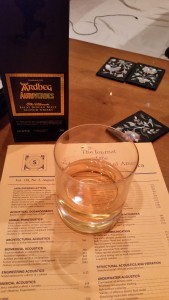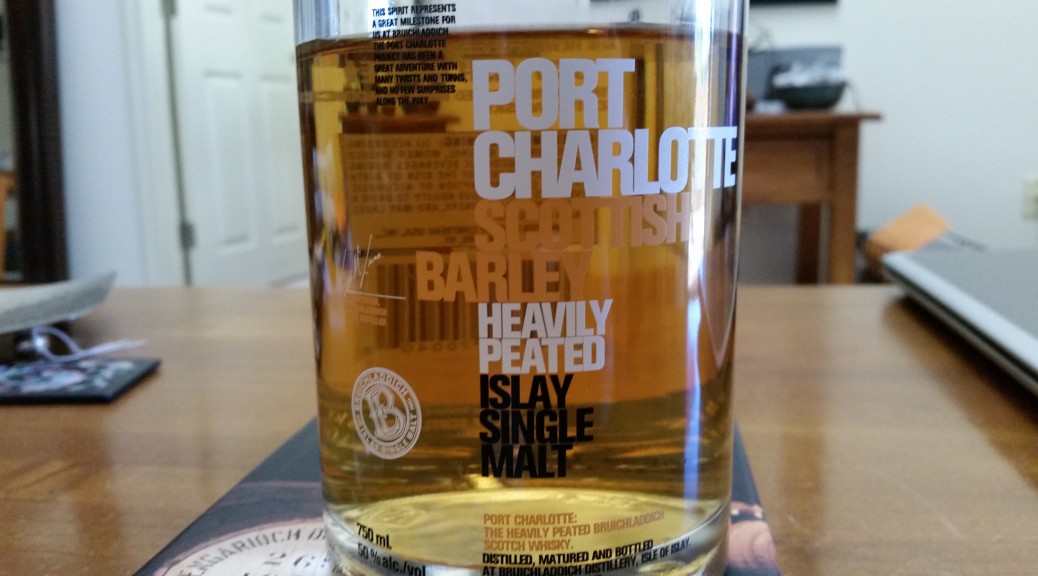When I hear people say “We are a Christian nation” I have to say I get a little scared. But I become really terrified when I hear public officials, senators, mayors, governors, presidents or presidential candidates saying these things. I blogged a short little blurb on facebook which started a bit of a controversy and I’m sure angered a few people. I stand by what I said and more importantly why I said it.
I am writing this blog to explain why I said it and why I think it’s inappropriate for public servants to say such things, even if they intend to unite some portion of our population.
First off I have to say that I do support the right of all people to practice their religion. This country was founded on that and other related principals. And I’m not that offended when people wear their beliefs on their sleeve though I do get put off by aggressive attempts at proselytizing. What I was really getting at in my initial blog (and what motivated it) was the effect this type of statement has when it is made by a sitting president, other public servant or a presidential candidate. This is very scary and telegraphs to me the possibility that there is an undercurrent of antisemitism within the American political establishment. The more outward manifestation is antimuslim sentiment which has been growing since the attack of 9/11/2001, the wars in Afghanistan and Iraq and the seemingly eternal “war on terror”.
To move on to the main theme of this essay. First you need to understand that despite many of our founding fathers being Christian, or raised in a Christian environment, many were known to be Deists, including George Washington. Deism asserts that G-d exists and that a divine creator made this universe and everything in it but does not support belief in revelation or prophecy (which is how G-d expresses “himself” in the bible). Deists look to logic, reason and the scientific process to guide them in understanding the universe and by extension G-d’s intentions. Think of Einstein’s famous quote “I want to understand G-d’s thoughts, the rest are details”. It could be said the Einstein viewed physics and math, as a religious pursuit.
The push to be a “Christian Nation” seems to have evolved recently as a backlash to a variety of social changes. Perhaps these changes were scary to a group of people and in an attempt to push back without success the bully stick of religion was adopted as a method of defense (and offense) against these changes. Keep in mind that I’m telling this story based on my life and experience and haven’t done any academic research on this apparent movement. I grew up in the 70s and 80s in Chicago and by my recollection it was a pretty liberal atmosphere. Probably because it was a big metropolitan city. There were gay bars and restaurants, neighborhoods where people of all types were out, being themselves, and not trying to fit in to any particular social template. Hell, we even had Lynden LaRouche supporters proselytizing on every corner. They were always funny, we considered them entertainment because we didn’t take them seriously and never imagined they’d gain momentum. I recall Heavy Metal being blamed for murders and suicides, I remember Frank Zappa appearing on talk shows discussing censorship and the emergence of an oligarchic government. In the 90s, during the Clinton administration, Tipper Gore publicly led the charge to protect our children from the evil of rock and roll lyrics and other perversions and earned a place in Metal history as the main theme of Anthrax’s song “I’m Starting Up a Posse”. It’s a little ironic to me that a movement we now attribute to the extreme right was led in the 90s by the left but that’s neither here nor there.
I’m not sure that Rock and Roll was really the impetus for the current atmosphere but it’s always been an easy scape goat, art always is. During this time it was common for the opposition of social liberalism to attack the nature of “liberal behavior” and convince people that our children were in danger of being brainwashed and molested by it, e.g. the gay “lifestyle” or “agenda” (whatever that means), metal lyrics, porn, etc. That seems to have backfired a bit and strengthened the liberal side. What I see more recently is a replacement of this type of attack with a new strategy. Let’s say that social liberalism violates our constitutional rights to practice our religion. In other words if we can’t make people believe “they” are the devil we’ll show people that “we” are poor victims. No one will dare challenge our constitutional right to be “Christian”. It could have been Jews, Muslims, Hindus, even Satanists (though that would be ironic). But of all the religions out there Christianity does represent a majority of our population. So, the strategy is to say “We’re not against anyone, we’re just trying to protect ourselves.” From what, freedom?
So, for whatever reason and whatever motive we now have a “movement” in this country to Christianize it. There could be other motives beside those I’ve mentioned. What I’ve pointed out is just what I see happening. But this movement is the cornerstone of the essay. I’ll state again, I don’t really care if a bunch of citizens who happen to be Christian want to stand outside handing out flyers telling me that my soul is in danger and our country is going to hell. I can choose to ignore it. Where the rubber hits the pavement on this issue is when the leaders of our FREE NATION use this rhetoric in speeches and debates. And now I’ll move on to a few examples of this in the last 15 years or so and what the effect of this is on non-Christians.
There are numerous instances of politicians, judges and various pundits stating that “We are a Christian Nation” or asserting that our nation was founded on Christian ideals. A few sample quotes are provided below.
“I would probably have to say yes, that the constitution established the United States of America as a Christian nation… The lady that holds her lamp beside the golden door doesn’t say ‘I only welcome Christians.’ We welcome the poor, the tired, the huddled masses; but when they come here they should know that they are in a nation founded on Christian principles.”
~John McCain
“I have said enough to show that Christianity came to this country with the first colonists; has been powerfully identified with its rapid development, colonial and national, and today exists as a mighty factor in the life of the republic. This is a Christian nation…
…[T]he calling of this republic a Christian nation is not a mere pretense but a recognition of an historical, legal and social truth.”
~ David J. Brewer, JD
“Go back to what our founders and our founding documents meant — they’re quite clear — that we would create law based on the God of the bible and the ten commandments…”
~ Sarah Palin
Most politicians are clever enough not to say “We Are a Christian Nation” directly but infer the belief in their statements. If you are a Christian I must dispel the idea that I am antichristian, I am not. You probably won’t believe me but I cannot help what you think and believe. I am pro American which means I am a defender of your right to practice Christianity. But I am as much an advocate for Satanists, followers or Allister Crowley, Scientologists, Mormons (cue Penn Jillette giggling) and even Atheists. They all belong here because America and American ideals are all-inclusive. When I hear the sentiment that “America is a Christian Nation” I hear a hidden message. You may not realize it but it’s there. The hidden message is “This is our (Christian) land and we let you live here, you’re lucky we do, but if we don’t approve of you the jig is up and we’re getting rid of you”. This was the sentiment in Germany and Austria in the 1800s up through the beginning of WWII. Many may be unaware of this but before WWII Germany was very accepting of Jews. They allowed Jews to own property, get an education, to hold positions in the government. It seemed like Jews were finally accepted by Europe after hundreds of years of inquisition (Medieval, Spanish, Portuguese, etc.). But there was always a caveat to this “acceptance”, don’t be too Jewish. In fact Jews were not allowed to even hold temple services in Hebrew according to some sources. They had to speak German, even when studying the Torah. German Jews assimilated and the Reform movement developed to accommodate this. They didn’t look or act Jewish in public and this allowed the Germans to tolerate them. This attitude had a backlash in that it was partly responsible for the rise of modern orthodox movements. This little rant went on a weird tangent but it is relevant. The rhetoric I am referring to in this essay makes a large demographic of America look and feel like pre-Nazi Germany. I just feel the Hate growing in this seemingly harmless statement.
Well, maybe I am being hyper sensitive but I don’t think so. Now that I’ve explained how it makes many people feel (I know I’m not alone and that many others I’ve met agree with me but I am alone in writing this) I’ll address some of the myths and lies told to us to try to justify this position.
Many supporters of the “Christian Nation” movement point to the following for justification, that our founding fathers were all Christian, that the settlers were Christian. The first fallacy in this rational is that the settlers and their beliefs had anything to do with the reasons given in our declaration of independence for dissolving our ties to the British crown or why we fought Britain for independence. Almost 200 hundred years had passed since the “discovery” of America and the revolutionary war. As I stated in the beginning paragraphs, many of the men who signed the declaration of independence and contributed to the constitution were deists. By definition a deist cannot be a Christian in the traditional sense. And I’m pretty sure nobody wants the America of today to be like 1500s or 1600s, like something described in The Crucible. Or maybe they do. The next fallacy is already addressed in the above discussion, namely that our founding fathers were all Christian. As I’ve pointed out they were all probably raised Christian but many, including George Washington, Thomas Jefferson and Benjamin Franklin, were deists. Additionally it should be a well-known fact that Jews had settled here in the 1700s and did contribute to our fight against the British crown. Among many of the Jewish-Americans who are remembered in history are Haym Solomon, Mathias Bush and his son Lieutenant Colonel Solomon Bush (I’m not sure if they are related to the “Bush” regime of modern times). I’m not saying America was a sanctuary for Jews. It is well-known that for many Europeans living here at the time the term “Liberty” did not include Jews, Africans or Indians. But then again that was not the only sentiment of the day and some of our European forefathers knew this thinking was wrong. In addition to Jews, Muslims came with the Spanish to conquer the Americas. The point is that Christians were not alone and were not the only ones who contributed to our freedom.
I think you get it but you might be thinking, “There weren’t that many of them (the “others”) so why should they count?” “After all in a democracy majority rules, right?” “And Christians are a majority so why shouldn’t this be a Christian nation that accepts others, like Israel is a Jewish state that accepts others.” My head hurts after typing that, I’ll need to blog again when the smoke clears. Well, majority rule applies to voting on such things as whether to spend taxes on a new road or a new school, or to raise taxes to build both, and other such things to support the people, but not when it comes to the basic human rights of all individuals. Not when it comes to deciding whether or not a human being has the same rights as “one of us”. Here there is no majority vote. We don’t get to say that because there are more of one type of person versus another that the others don’t have rights. When it comes to civil liberties there is one group affiliation (perhaps two) that counts, simply being (and perhaps being an American citizen or resident).
The previous statements reveal another hidden fallacy. Supporters of the Christian Nation movement use Jews and Judaism to soften the blow by changing the rhetoric “Christian Nation” to “a nation built or founded on Judeo-Christian principals”. I like how they place the Jew out front as a shield, almost a scape goat. There are some Christian sects that study the old testament and claim to adhere to the principles outlined in the Torah but they are the exception and not the rule. The fact is that the use of the term Judeo-Christian is a device used to obfuscate the movement to Christianize America. Our founding fathers were educated enough and diverse enough to realize that America should have a secular government, and that a true secular government should be based on scientific principles. That our policies and laws of self-governance should not be based on “faith” or faith-based reasoning but on reason, logic and scientific evidence. I am sure that not all of our founding fathers agreed entirely on this but that lack of agreement is exactly why they developed a secular government. And this is the last fallacy that I’ll discuss (there are too many and my head is spinning). We are being led to believe that our founding fathers were all in agreement that Christian principles are the universal guide to good living but this is blatantly false. They clearly did not, but what they tried to do was find a common denominator that would allow everyone to live here peacefully and prosper regardless of the differences in their beliefs and faith.
Our founding fathers knew that the collective conciseness of the American people would expand (or at least they had hoped it would) and wrote our constitution to be open enough to accept all people one day. Our constitution expresses a vision of America that acknowledges the basic human rights of people or groups of people who don’t even live here yet. We do not extend this courtesy to our enemies, to those who really want to do us harm, but do to all who would pledge allegiance to our country.
My thought on this matter can be summed up in the following quote.
“As Mankind becomes more liberal, they will be more apt to allow that all those who conduct themselves as worthy members of the community are equally entitled to the protections of civil government. I hope ever to see America among the foremost nations of justice and liberality.”
~George Washington
In closing we are not a Christian Nation but rest assured that Christians are and will always be welcome here.
Copyright 2015, David R. Bergman








